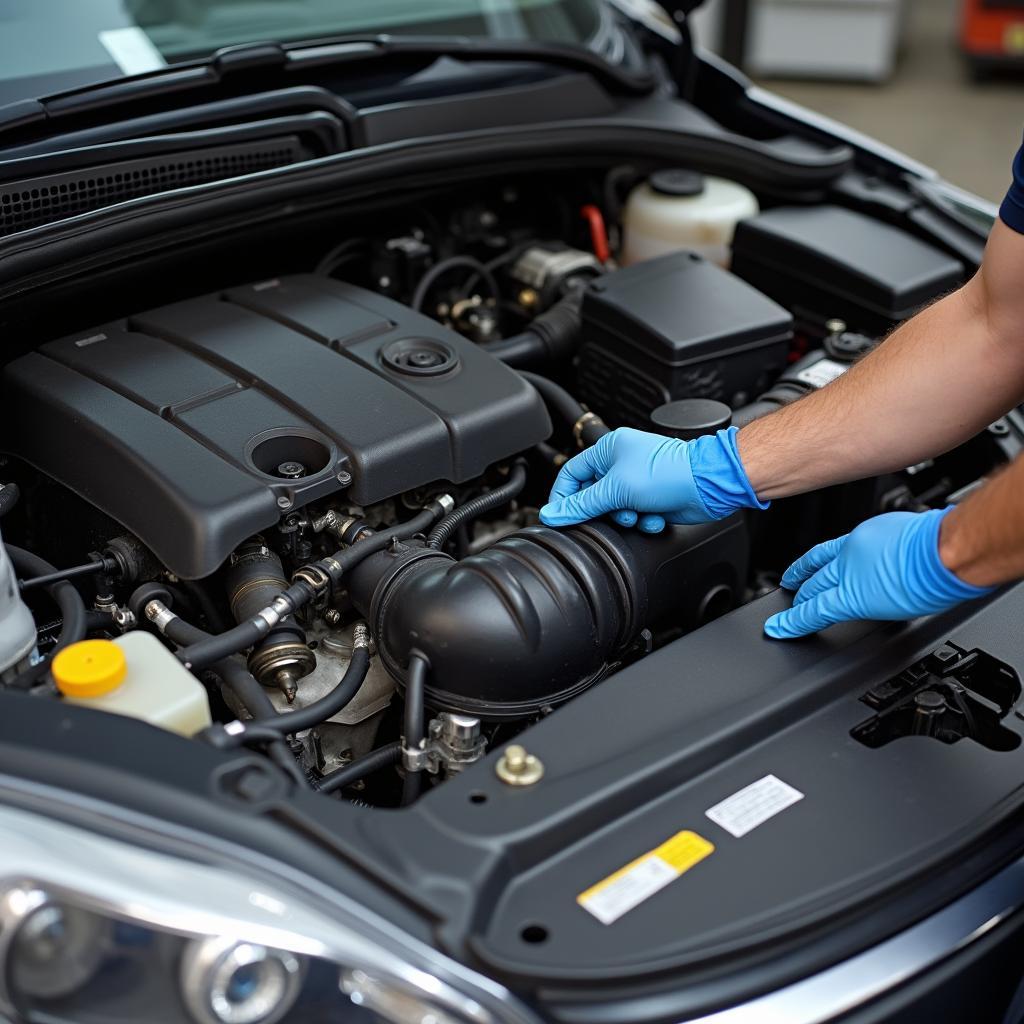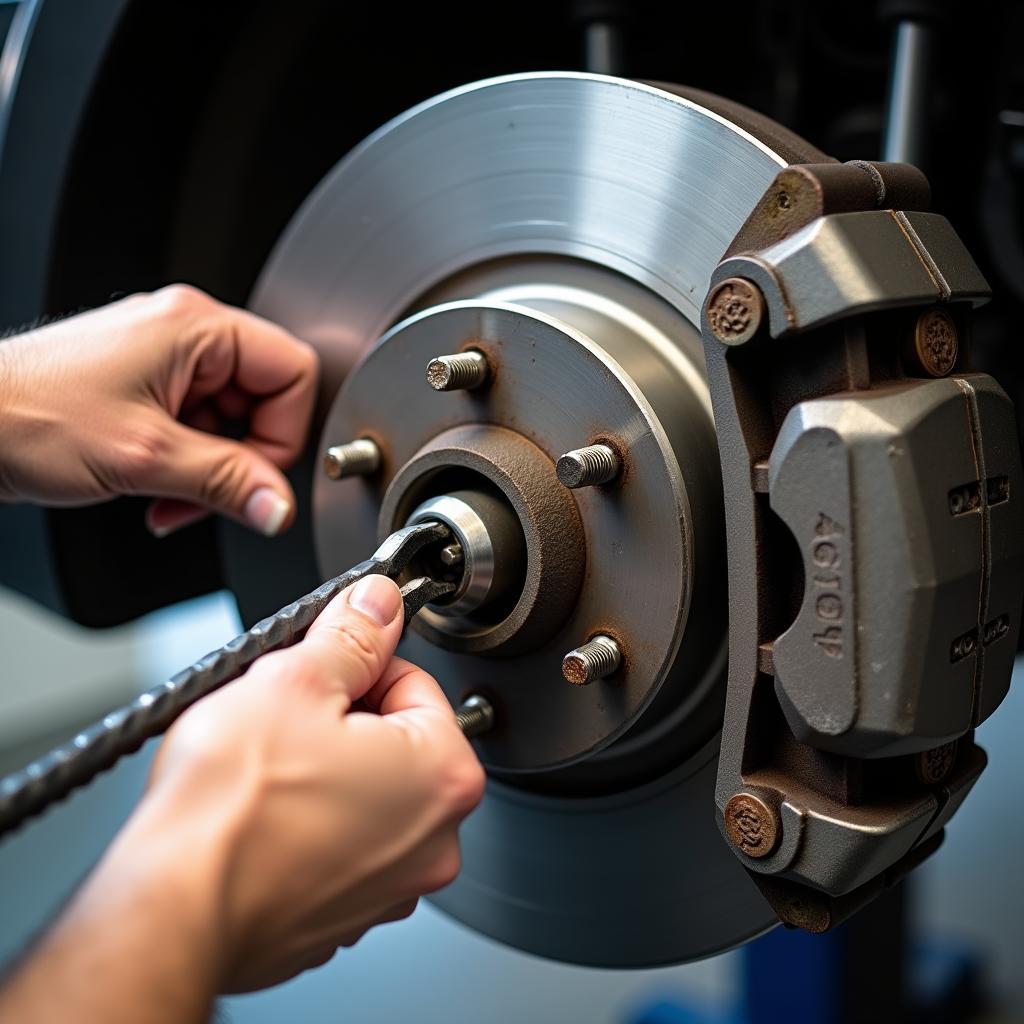A full car service is a comprehensive check-up and maintenance procedure for your vehicle, designed to keep it running smoothly and identify potential problems before they become major issues. Understanding what a full car service entails can save you money in the long run and ensure your safety on the road. Let’s delve into the specifics of this essential car care process.
what comes under full car service
A full car service goes beyond a basic oil change and tire rotation. It involves a thorough inspection of various components, including the engine, brakes, suspension, and electrical systems. This in-depth assessment helps mechanics identify wear and tear, leaks, and other potential problems that could affect your car’s performance and safety. Regular full car services are crucial for maintaining the overall health of your vehicle and extending its lifespan. Think of it as a comprehensive health check for your car, ensuring it’s in top condition.
What Does a Full Car Service Include?
A full car service typically includes a wide range of checks and replacements, covering key areas of your vehicle. These checks are designed to address both immediate needs and prevent future problems. Understanding each element helps you appreciate the value of a full car service.
Engine Inspection and Maintenance
The heart of your car, the engine, receives significant attention during a full car service. This includes checking the oil level and condition, replacing the oil filter, inspecting the air filter, and examining spark plugs. These steps ensure optimal engine performance and fuel efficiency.
 Full Car Service Engine Inspection
Full Car Service Engine Inspection
Brake System Check
A crucial safety aspect of any full car service is the thorough inspection of the braking system. This includes checking brake pads and discs for wear and tear, examining brake fluid levels, and ensuring the entire system functions correctly. Properly functioning brakes are essential for your safety and the safety of others on the road.
Suspension and Steering Examination
The suspension and steering system are essential for a comfortable and controlled driving experience. During a full car service, mechanics inspect these systems for any signs of damage or wear, ensuring your vehicle handles correctly and provides a smooth ride.
 Full Car Service Brake Inspection
Full Car Service Brake Inspection
Electrical System Evaluation
Modern vehicles rely heavily on complex electrical systems. A full car service includes checking the battery, alternator, lights, and other electrical components to ensure they’re functioning correctly. This check helps prevent unexpected electrical failures and ensures all systems work as intended.
Why is a Full Car Service Important?
Regular full car services offer a range of benefits that contribute to the longevity and safety of your vehicle. Understanding these benefits can help you prioritize this essential maintenance.
- Improved Safety: By addressing potential problems early on, a full car service helps prevent breakdowns and ensures your car is safe to drive.
- Enhanced Performance: Regular maintenance keeps your engine running efficiently, improving fuel economy and overall performance.
- Increased Resale Value: A well-maintained vehicle with a full service history is more attractive to potential buyers, increasing its resale value.
- Reduced Long-Term Costs: Addressing minor issues during a full car service can prevent them from developing into more costly repairs down the line.
how much does a full car service cost uk
“A full car service isn’t just an expense; it’s an investment in the safety, reliability, and longevity of your vehicle,” says David Miller, Senior Automotive Engineer at Automotive Solutions Ltd. He adds, “Regular servicing can significantly reduce the risk of unexpected breakdowns and costly repairs in the future.”
How Often Should I Get a Full Car Service?
The recommended frequency for a full car service varies depending on the make and model of your vehicle, as well as your driving habits. Consult your owner’s manual for specific recommendations. Generally, a full service is recommended every 12 months or 12,000 miles, whichever comes first.
how to successfully run a car service business
Conclusion
A full car service is a vital part of car ownership, ensuring the safety, reliability, and longevity of your vehicle. Understanding what’s included in a full car service and its benefits empowers you to make informed decisions about your car’s maintenance. Regular servicing is an investment that pays off in the long run, keeping you safe on the road and minimizing unexpected repair costs. Don’t neglect this crucial aspect of car care.
where is the nearest full service car wash
how much should i pay for a full car service
“Think of your car like your body; it needs regular checkups to stay healthy. A full car service is that checkup for your car,” says Sarah Johnson, Lead Mechanic at Johnson’s Auto Repair.
FAQ
- What is the difference between a full car service and an interim service?
- How long does a full car service take?
- Can I perform a full car service myself?
- What should I look for when choosing a car service provider?
- How much does a full car service typically cost?
- What is included in a full car service checklist?
- Is a full Car Service necessary for a new car?
Need assistance? Contact us via WhatsApp: +1(641)206-8880, or Email: [email protected]. We offer 24/7 customer support.
Leave a Reply